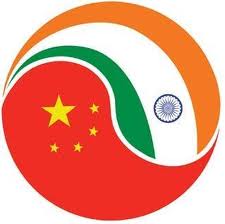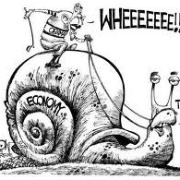While the Chinese government must rebalance its economy away from export and investment-led growth towards household consumption-led growth, the problem is that the combination of low wages, low interest rates on savings and an undervalued currency all conspire to keep the household share of Chinese GDP spectacularly low, constraining household spending. Reversing all these policies will be difficult, and thus Chinese growth rates are sure to continue slowing.
Tag Archives: China
Watch List
The Friday File: In 2011, 1.15 billion watches sold for $30 billion. China sold the most, almost 700 million pieces, and at an average price of $2/watch; their industry was worth $1.5 billion. By contrast, the average price of the 30 million Swiss watches was $685/watch, making their industry worth $20.5 billion. Hong Kong was #2 in volume at 400 million, while France was #2 in average price at $175.
Asian Ascent
By 2060, India and China are each projected to have economies larger than that of the US, and collectively 46% of world GDP, compared to 24% today. By contrast, the developed economies of Europe, North America and Japan will account for 42% of world GDP compared to 65% now. Despite this, GDP/person in China will be 59% of ours; in India just 27% of what it will be here.
The China Syndrome
China’s economy must slow dramatically, here’s why. China’s growth over the last few decades has been based on huge government investment. But good projects are getting hard to find and rich countries are growing slowly, if at all. Thus exports and export-lead investment will slow. To compensate, China must boost domestic consumption, now just 35% of GDP; here it’s 70%! This rebalancing must occur and will reduce growth rates.
Sluggish Economy
The IMF sees global growth in ’12 slowing to 3.25% from 4% in ’11. It’s because the 17 nation Euro-zone will contract by 0.5% and China’s growth will slow from 9% to 8.2%. Growth here is expected to be 2%; better than ’11 but not enough to really dent unemployment. By suggesting, earlier today, that it will keep interest rates where they are till late ’14, the Fed has admitted that it too expects sluggish growth.
Moral Hazard
Ideally Greece would leave the Euro, default on its debts, and get on with its economic existence. But, leaving the Euro would be a disaster for the Euro zone. So the Europeans won’t let it happen. Neither will the Chinese as they do not want the US Dollar to be the only reserve currency. Since the Greeks know this they have no incentive to financially behave because they know they will get bailout out.
Food is Expensive
In poor countries people spend much more on food than we do. In the Philippines 47% of income is spent on food. The amount is 45% in India, 40% in Vietnam, 36% in Indonesia, 33% in Thailand, 30% in China, 22% in Singapore, 14% in S. Korea. Here it’s just 8%. Because it’s so high in poor countries, recent increases in food prices are reducing consumer spending and threatening GDP growth.
China to Surpass USA in ’16
27 The IMF has determined that China’s economy will surpass ours in 2016 – in 5 years! Many have said it will happen in the mid 2020s; they are wrong. 1) The Chinese currency is massively undervalued. 2) Using Purchasing Power Parity (PPP) which measures what people spend and earn in their own currencies China will grow from $11.2 trillion today to $19 in ’16 while we will rise from $15.2 to $18.8.
Purchasing
Chinese Trade Deficit!
Yesterday China reported that imports ($400bn) had exceeded exports ($399bn) in Q1 ‘11. This tiny deficit, China’s first in 7 years is an encouraging development for the world economy. It comes after 2 successive years of import growth outpacing exports. Hopefully this trend will continue. If so China will stop printing Yuan (to keep the exchange rate where it wants) and thus reduce domestic inflationary pressures.




